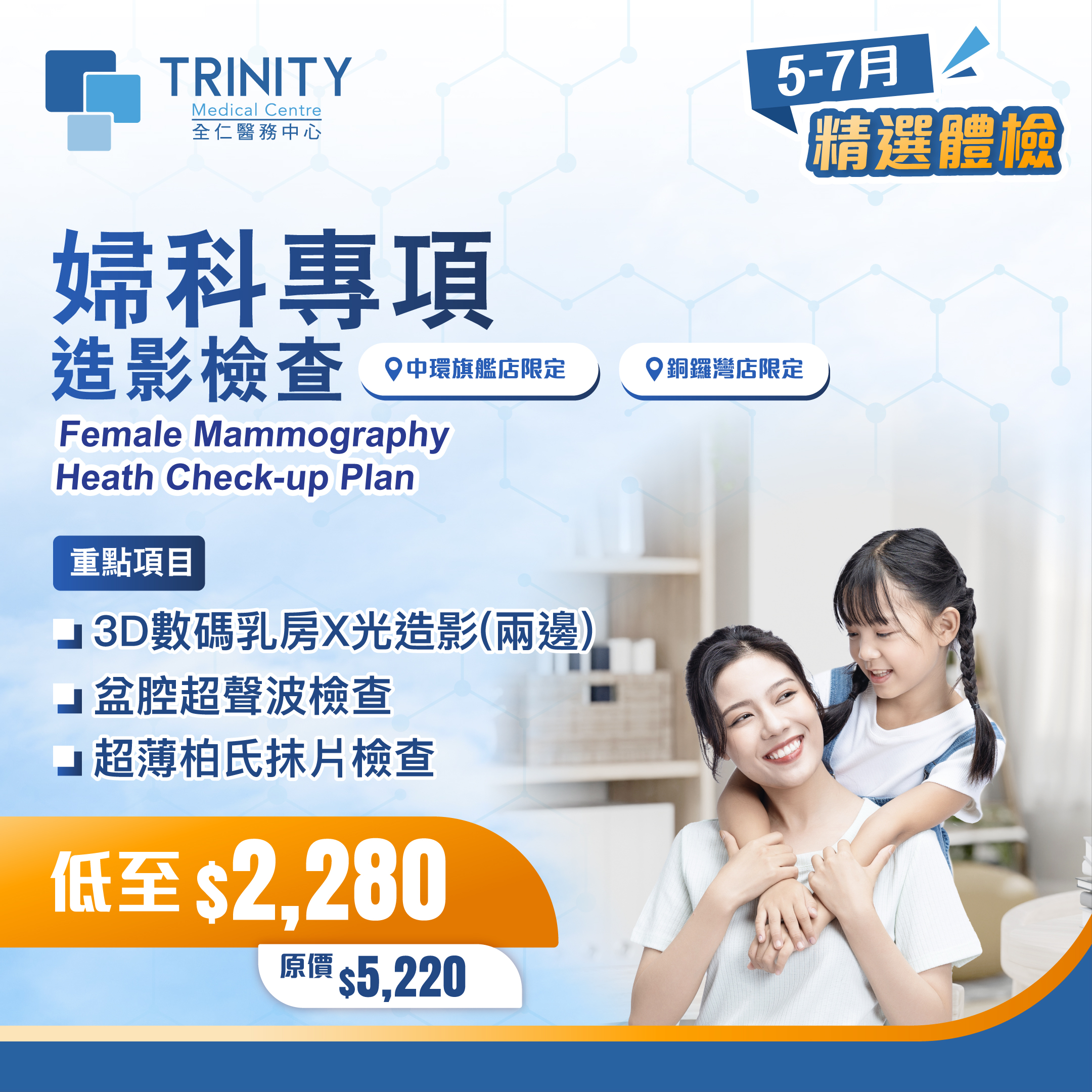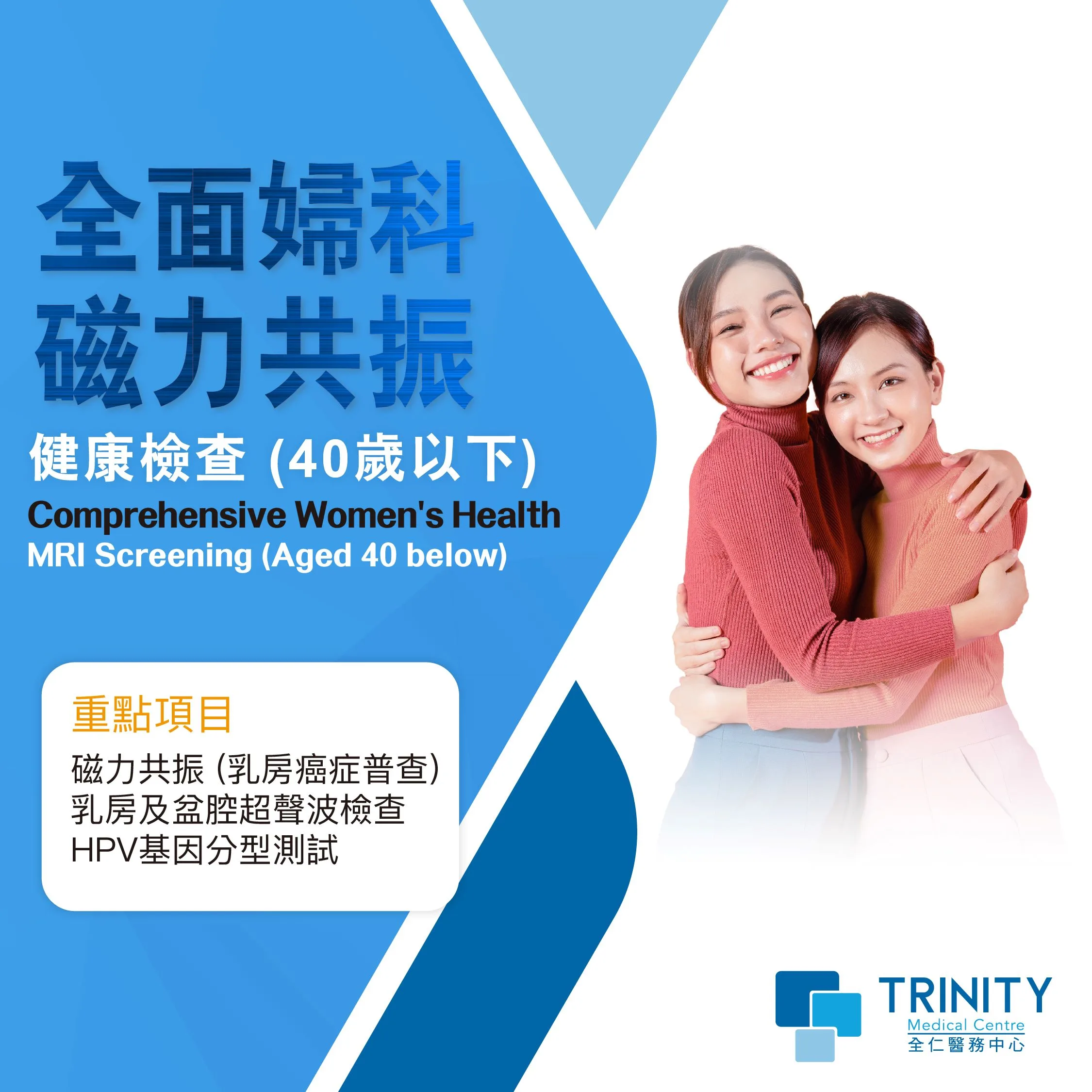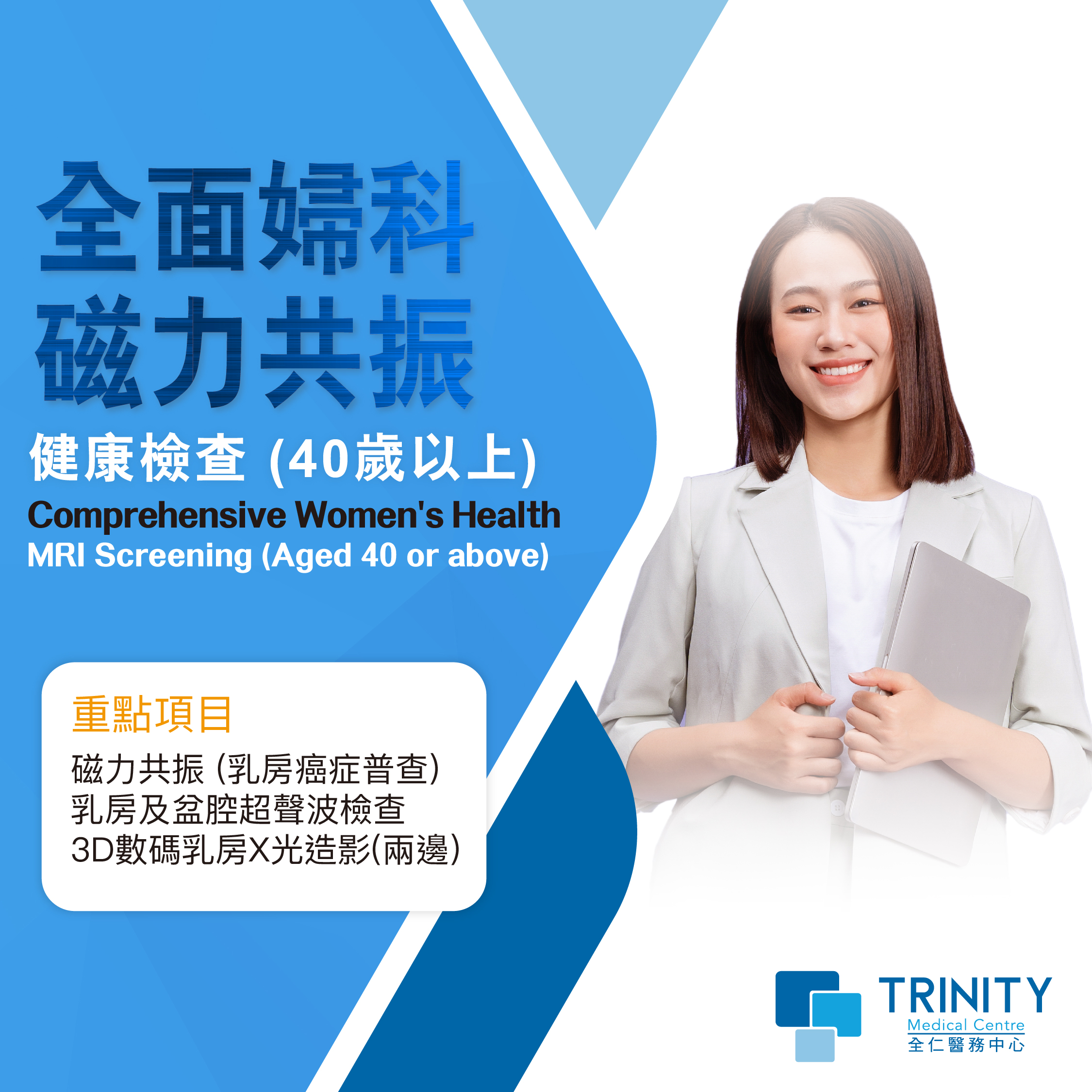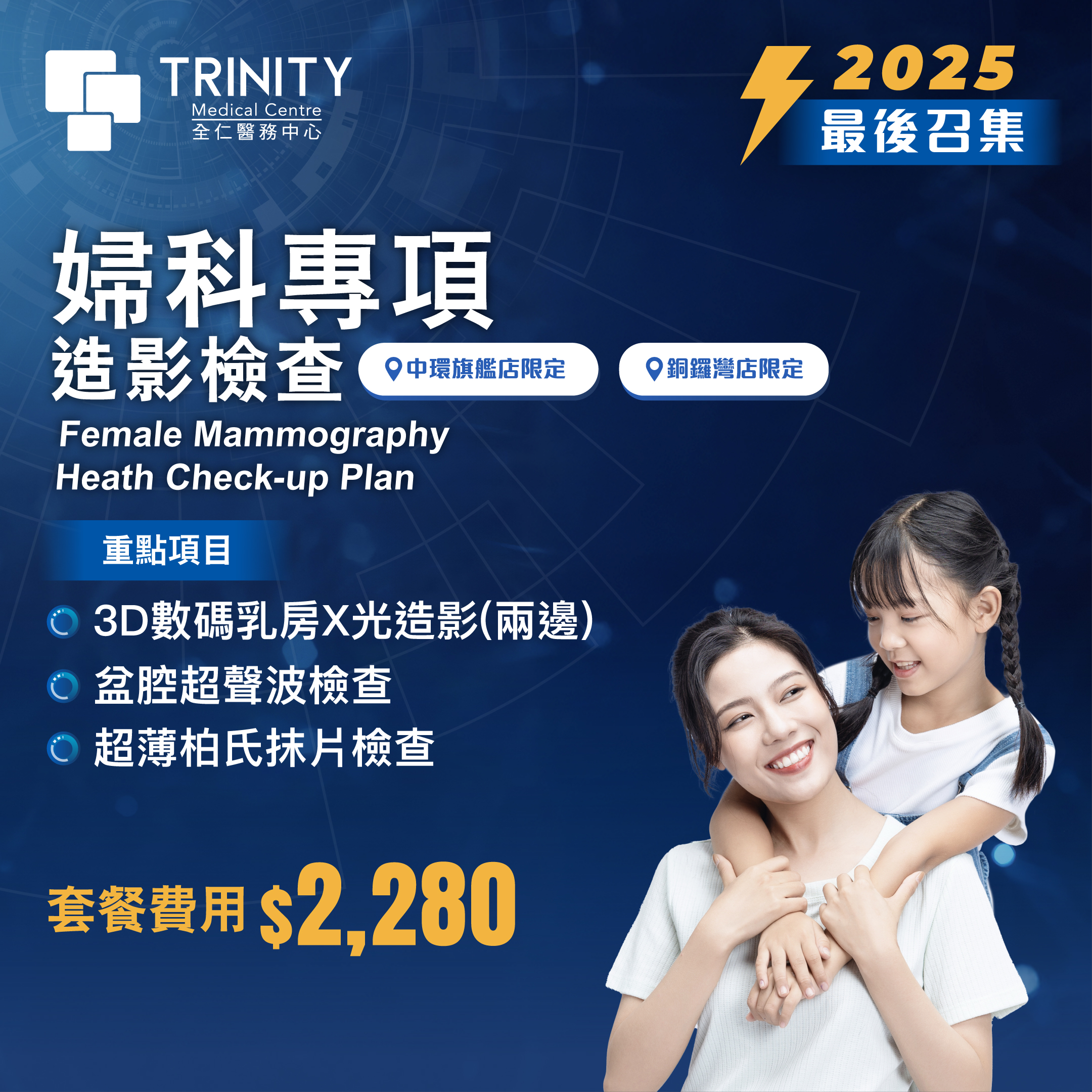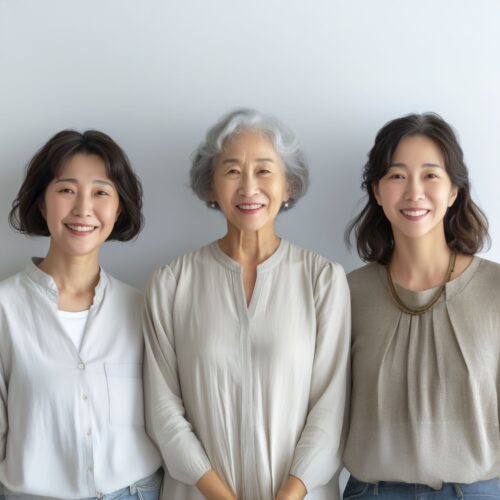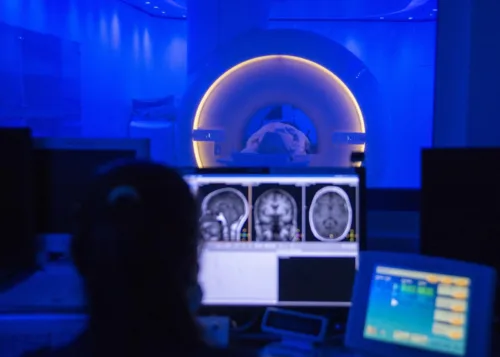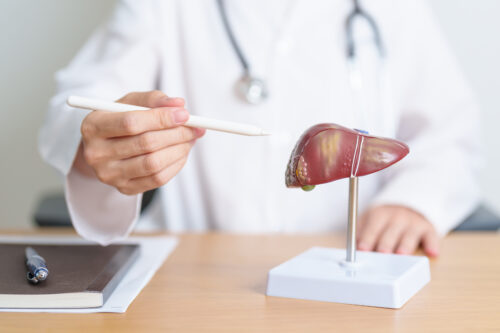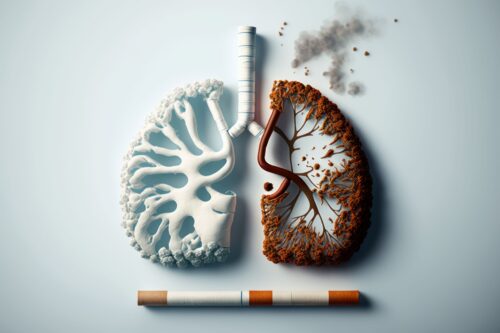The Hong Kong Department of Health recently announced that the second phase of the Breast Cancer Screening Pilot Programme officially commenced on June 10, 2025, providing subsidized 2D mammogram screenings for women at high risk of breast cancer.
Who is suitable for the Breast Cancer Screening Pilot Programme?
Participants must meet all of the following criteria:
- Women aged 35 to 74. If there is a family history of breast or ovarian cancer, women can start screening 10 years earlier based on the age of the youngest diagnosed family member (but no earlier than 30 years old)
- Holders of Hong Kong Identity Card or Certificate of Exemption
- Joined the Electronic Health Record Sharing System (EHRSS)
- People who are at high risk of developing breast cancer include:
- Genetic testing has confirmed that she has certain gene mutations that increase her lifetime risk of developing breast cancer. The genes involved include: BARD1, BRCA1, BRCA2, CDH1, NF1, PALB2, PTEN, STK11, TP53
- Have a strong family history of breast or ovarian cancer, such as:
- Any first-degree female relative (mother, sister, or daughter) confirmed to have a BRCA1 or BRCA2 gene mutation
- Any direct or collateral female relative (sister, grandmother, granddaughter, niece, half-sister) who has both breast and ovarian cancer
- Any direct female relative has breast cancer in both breasts
- Any male relatives with breast cancer
- Two immediate female relatives have had breast cancer, and one of them was diagnosed at age 50 or younger
- Two or more direct or collateral female relatives with ovarian cancer
- Three or more direct or collateral female relatives have had breast cancer, or have had both breast cancer and ovarian cancer
- No breast cancer symptoms
- No history of breast cancer
- Have not had a screening mammogram in the past year, or are due for a doctor-recommended mammogram
Women with the following conditions should be followed up by their physician and are therefore not eligible for the program:
- Received radiation therapy to the chest between the ages of 10 and 30
- History of breast cancer
- A history of atypical breast or lobular hyperplasia
How to join the Breast Cancer Screening Pilot Programme?
- Contact the designated clinic and make an appointment for assessment
- Present your Hong Kong Identity Card or Exemption Certificate on the day of assessment and bring along other relevant medical documents (if any) as instructed, such as genetic test report, doctor’s referral letter, previous mammography report, etc.
- After the assessment, if you meet the qualifications, please sign the consent form and make an appointment for mammography screening. Please bring your ID and past medical records (if any) on the day of the assessment.
- Eligible people can go to designated medical imaging centers for mammography screening
- Get breast cancer screening and be notified of screening results by your provider
- Normal screening results
- Receive annual assessment and screening
- Always pay attention to breast health. If you find any abnormalities in your breasts, please seek medical attention immediately.
- Abnormal screening results
- Your doctor will discuss the screening results with you and develop a follow-up plan
- Arrange additional screening mammograms and/or breast ultrasound scans (if necessary)
- Referral to a specialist (if necessary)
For more details of the Breast Cancer Screening Pilot Programme, please visit the Department of Health website.
Who is at high risk of breast cancer?
If you are not eligible for the government’s breast cancer screening pilot program, this does not mean that you are not at risk of cancer, because the government’s breast cancer screening pilot program is mainly targeted at women aged 35 to 74 with a family history of breast cancer or ovarian cancer. But in fact, the risk of breast cancer is not limited to genetic factors.
On the other hand, according to the Hong Kong Breast Cancer Foundation report, local breast cancer patients generally have the following four common high-risk factors. Why not check how many of them can be applied to you?
- Less than three hours of physical activity per week
- Never breastfed after giving birth
- Being under high pressure for a long time
- Being overweight or obese
Starting at the age of 30, the risk of breast cancer has slowly increased?
Although the government’s breast cancer screening pilot program mainly targets high-risk groups, in fact, breast cancer does not only occur in women with a family history. The risk of disease will gradually increase with age. According to data collected, there will be over 5100 new cases in 2022, nearly 5 times more than in 1991. Moreover, breast cancer has occurred more in the younger generation, with the youngest patient in Hong Kong less than 20 years old. There are also cases diagnosed in the early 30s seen from time to time.
Therefore, women over 30 should establish a habit of regular breast examinations as early as possible. Even if there are no obvious symptoms, they should undergo a mammogram or breast ultrasound examination once a year to help detect abnormal changes early and gain the best opportunity for treatment.
Take care of yourself and focus on women’s overall health
Breast cancer certainly needs early screening, but women’s health is much more than that. Gynecological diseases such as uterine fibroids, ovarian cysts, cervical cancer, etc. often have no obvious symptoms in the early stages. If you only focus on breast examinations, you may ignore other potential risks. True health management should be comprehensive care for every important part of the body, from breasts to uterus, which should not be neglected.
What common diseases should women be screened for regularly?
| Gynecological Conditions | Common Symptoms or Potential Issues | Recommended Examination Methods | Screening Recommendations |
|---|---|---|---|
| Breast Cancer, Fibrocystic Breast Changes | Lumps, tenderness, nipple discharge, or skin changes in the breast | 🔎 3D Mammogram and Breast Ultrasound | Recommend annual breast ultrasound from age 30; regular mammograms from age 40 onwards |
| Uterine Fibroids, Ovarian Cysts, Endometriosis | Often asymptomatic early on; may cause painful or heavy menstruation, infertility, or pressure on other organs | 🔎 Pelvic Ultrasound | Recommend annual screening, especially for those with irregular menstruation, dysmenorrhea, or family history |
| Cervical Precancerous Lesions | Caused by persistent high-risk HPV infection; early stages are asymptomatic; abnormal cells may develop into cervical cancer | 🔎 ThinPrep Pap Smear (Cervical Screening) | After an initial normal result, repeat within 1 year; if second test is normal, screening every 3 years |
| Ovarian Cancer | Almost no symptoms in early stages; often overlooked until advanced | 🔎 CA125 tumor marker and Pelvic Ultrasound | Used as preliminary risk assessment and auxiliary diagnostic tool |
Gynecological conditions such as breast cancer, cervical cancer, and ovarian cancer often have no obvious symptoms at the early stage. By the time symptoms appear, the disease may already be at an advanced stage. Regular gynecological check-ups help monitor bodily changes effectively, allowing early intervention and improving survival rates and quality of life.
Trinity Medical Centre offers a variety of women’s health screening services, covering breast cancer, cervical cancer, ovarian cancer, uterine fibroids, and other common gynecological diseases. We provide quick appointment booking and flexible scheduling to help you manage your health easily without waiting.
Hong Kong people generally lead busy lives and value efficiency. Hence, many women prefer comprehensive health check-ups covering gynecology, blood tests, cardiopulmonary function, abdominal organs, bone health, and more. Routine check-ups often involve blood tests and ultrasound, but some deep organs (brain, lungs, liver, pancreas, kidneys, spine) may not be fully evaluated by these methods alone.
MRI offers high-resolution soft tissue imaging and is especially suitable for examining the brain, spine, pelvis, and internal organs. It helps detect tumors, inflammation, vascular abnormalities, and other early issues.
Therefore, to obtain a more comprehensive understanding of your health, basic screening alone may not suffice. Supplementing with advanced imaging like MRI can fill the gaps in routine tests and aid early detection of potential health risks, giving you peace of mind.
Frequently Asked Questions (FAQs)
Q1: What is the difference between Breast Ultrasound and Breast Mammogram? How to choose?
| Women’s Health Screening Method | Suitable For | Features |
|---|---|---|
| Breast Ultrasound | Women under 40 years old | No radiation; clearly shows breast tissue and cysts |
| Breast Mammogram (2D / 3D) | Women aged 40 and above | 2D Mammogram: Low radiation dose; detects calcifications and tumor outlines |
| 3D Mammogram: • Provides multi-angle 3D images, offering clearer and more accurate detection of small tumors • Detects more invasive breast cancers than 2D mammograms • Reduces false-positive results |
Q2: What is the difference between the Government Breast Cancer Screening Programme and Private Medical Centres?
The government programme targets high-risk groups and mainly provides 2D mammograms. Private medical centres offer a wider range of screening options (such as breast ultrasound, 3D mammograms) and more flexible scheduling. Private centres are suitable for those seeking comprehensive gynecological screening or who do not meet government eligibility criteria.
References:
- Department of Health, “Understanding Breast Cancer” Booklet (2021)
https://www.chp.gov.hk/files/pdf/3_booklet_tcn.pdf - Hong Kong Cancer Registry – Breast Cancer Risk Assessment Tool
https://www.cancer.gov.hk/tc/bctool/index.html - Hong Kong SAR Government Cancer Online Resource – Breast Cancer Risk Assessment Tool
https://www.cancer.gov.hk/tc/bctool/index.html - Hong Kong Breast Cancer Foundation – What Age Groups Are High Risk?
https://www.hkbcf.org/zh/patient_support/main/860/ - Hong Kong Breast Cancer Database – Report No. 16
https://www.hkbcf.org/upload/category/1135/self/66f3fc25e9d7d.pdf


